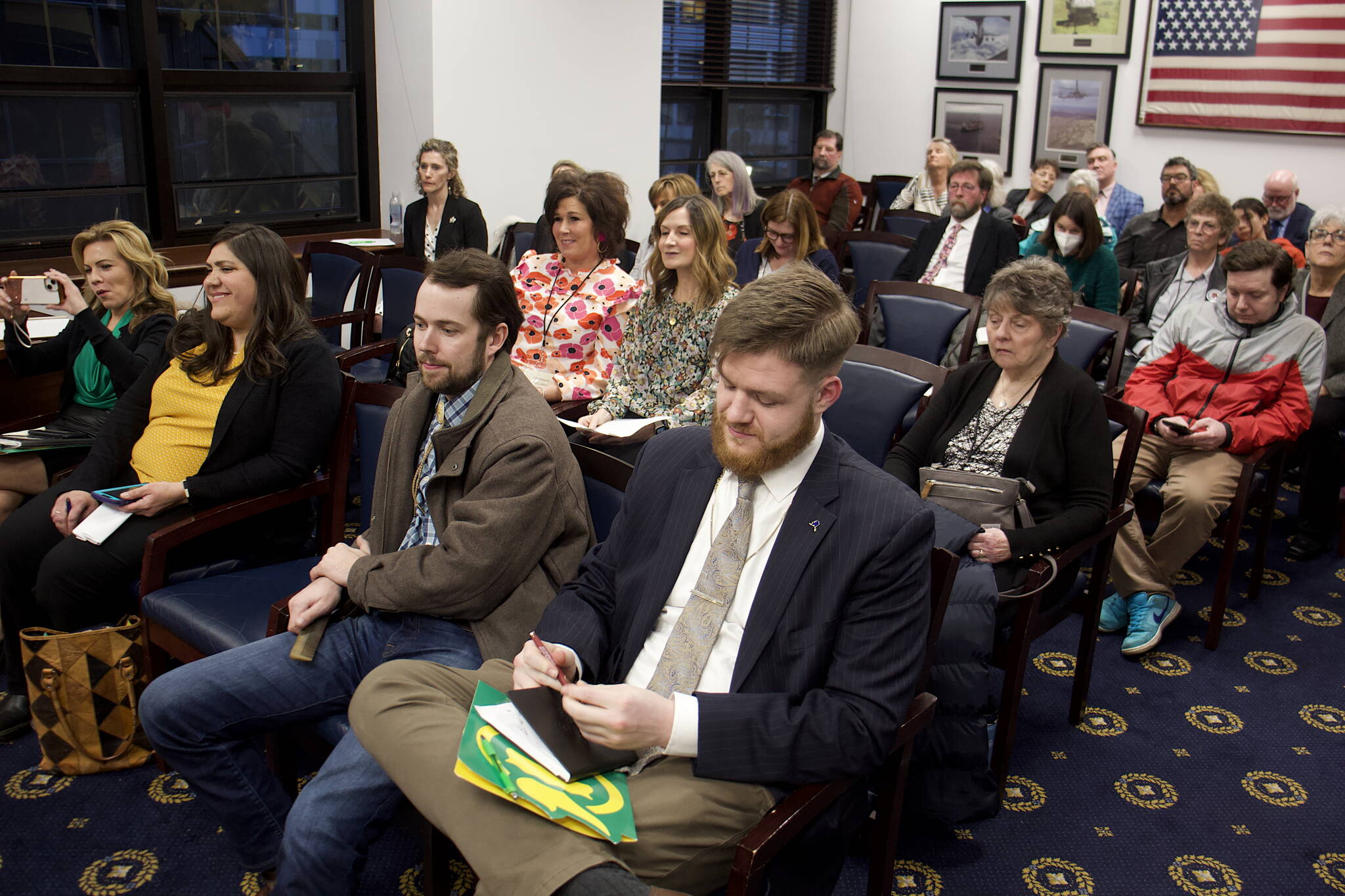Morgan Michels is a first-year teacher who grew up in Alaska and returned to school three times in the state, the last of them for her master’s degree before taking her new job in Juneau. In a halting tone with apologies for her nervousness, she told legislators she’s always been active in community activities and, given the widespread shortages of teachers and other workers, her life experience is “the perfect example of what the state should look like.”
“I look around and there’s not a lot of other teachers in that position,” she said, arguing an increase in educating funding is needed to help lure more people to the profession.
Michels was among the scores of residents from around the state who spoke online and in person during nearly 10 hours of hearings Tuesday by two committees focusing on state spending for next year, with the focus almost entirely on education. Some were hesitant individuals like Michels, others were well-organized groups such as about 35 members of Americans for Prosperity Alaska who visited the Alaska State Capitol to oppose a proposed increase in education funding.
The responses from legislators was as diverse as the opinions from their constituents.
Empathy for Michels was expressed by Rep. Neal Foster, a Nome Democrat, following her testimony during a House Finance Committee meeting Tuesday evening, part of a week of hearings to get feedback on the committee’s proposed state budget for next year that was unveiled Monday.
The first-year teacher also got a hug from Juneau School District Superintendent Bridget Weiss, who testified along with several other local educators in the sparsely populated room during the hearing.
But in a room four floors down, where the House Education Committee was considering a bill to raise the base student allocation, there was a sharply contrasting atmosphere during hearings Tuesday evening and early the next morning. Most of the people packed into the room during the five-hour evening hearing were Americans for Prosperity members opposing a BSA increase and finding numerous faults with the public school system.
“How much money would be enough, because I don’t think there’s an answer to that,” said Eric Godden, an Anchorage resident. “Right now, we have schools that are succeeding and schools that are failing, and we’re treating this bill as if this is going to fix all of that.”
Godden asserted charter, correspondence and private schools are doing well compared to public schools, and therefore parents and students should have “freedom of choice” in how their their education funds are used. He also said schools are talking about closures, program cuts and layoffs without addressing a different staffing problem.
“I haven’t heard anyone say a six-figure administrator is being cut,” he said. “How many of those do we have to cut to save a pool or save a football team or save a teacher?”
The bill before the committee proposed a $1,250 increase to the current $5,960 per-student allocation, roughly the amount needed to make up for inflation since the formula has remained essentially unchanged since 2017, which was supported by most people testifying remotely. The next morning Rep. Tom McKay, an Anchorage Republican, proposed an amendment reducing the increase to $150 and expressed a dismissive viewpoint about the pro-increase testimony of the previous night.
“A vast majority of the folks that testified last night for five hours were paid school district employees of some sort,” he said. “People that make their money off the BSA, so it’s not necessarily true that we were receiving public testimony. I speak for the folks that sit home and work. Maybe they were working and unable to attend the public testimony meeting we had.”
McKay’s amendment failed by a 3-4 vote, with co-chair Justin Ruffridge of Soldotna the lone Republican in opposition. Ruffridge said he understands concerns about the state being financially prudent, especially after a dismal revenue forecast on Tuesday that means House’s proposed budget is suddenly facing a huge deficit, but that isn’t his primary focus while the bill is in his committee.
“The job of education committee is to look at the education needs of our state,” he said. “If bills makes it to the next stage they look at the financial implications.”
The House Finance Committee is scheduled to take additional public testimony on its proposed budget Thursday. The education funding bill was passed out of the Education Committee on Wednesday with an $800 increase during the next two years and will next be heard by the Finance Committee.
• Contact Mark Sabbatini at mark.sabbatini@juneauempire.com

